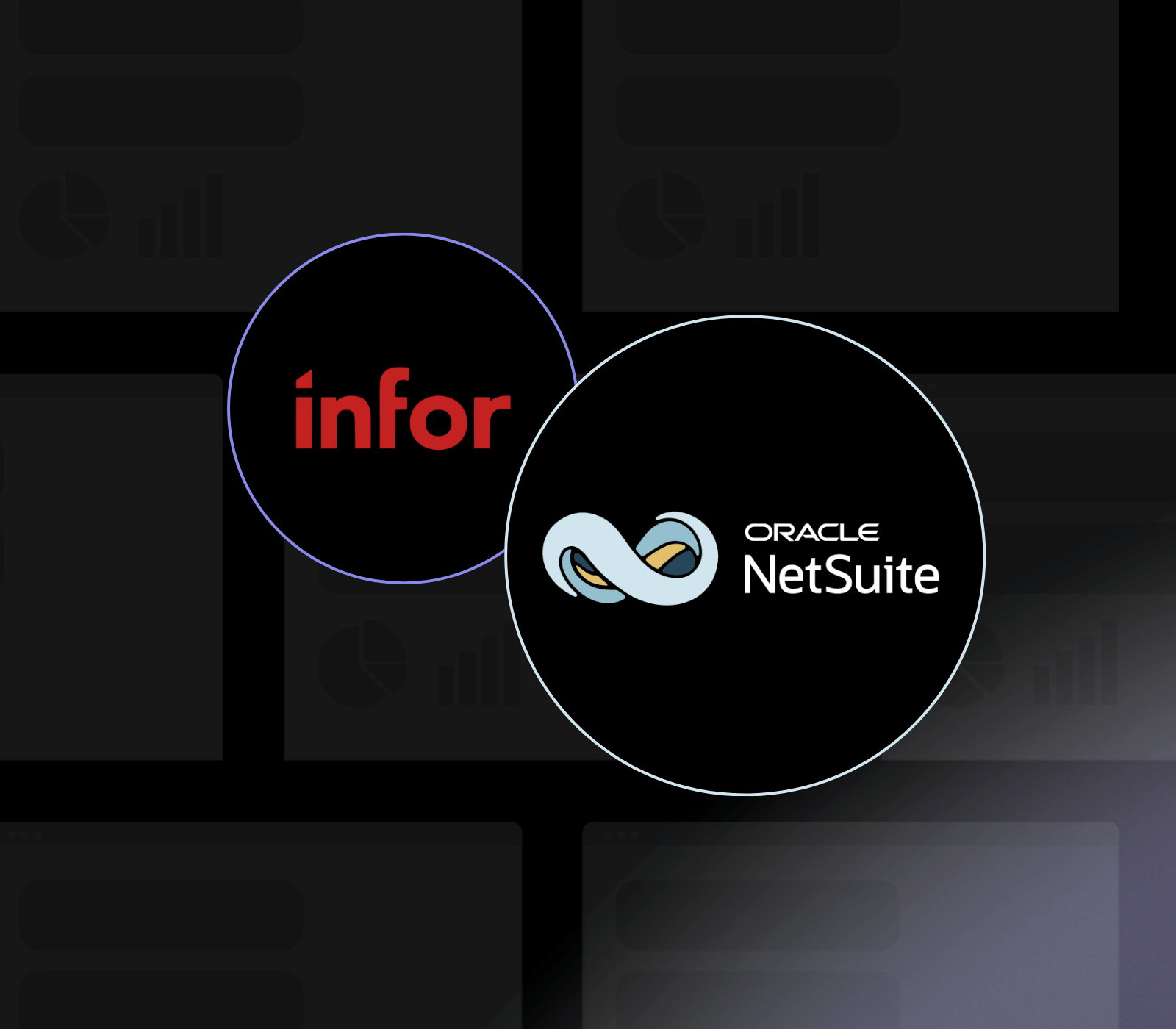Why switch to NetSuite from Infor
-
One platform, fewer moving parts
NetSuite offers one data model across finance, CRM, inventory and planning while Infor’s connected CloudSuites create integration complexity as you grow.
-
Multi-entity without friction
Consolidate subsidiaries, currencies and tax rules in one environment. With NetSuite OneWorld, intercompany and group reporting stay consistent across regions and teams.
-
Upgrades that stay aligned
NetSuite ships automatic twice-yearly updates that preserve your setup. This avoids coordinating changes across separate products and keeps teams working from the same version.
Understanding NetSuite vs Infor ERP
-
See NetSuite ERP in action
There’s no better way to explore how NetSuite ERP can benefit your organisation than by experiencing it firsthand.Request a product tour
Questions to ask before you choose
NetSuite’s OneWorld edition natively supports multi-entity consolidation, intercompany eliminations, multi-currency management and global tax compliance in a single environment. Infor often requires combining multiple CloudSuites, which can increase integration complexity for organisations managing subsidiaries.
NetSuite delivers built-in SuiteAnalytics, role-based dashboards, real-time reporting and predictive modelling – all inside one system. Infor’s reporting is strong within each CloudSuite but can become fragmented when pulling data across finance, supply chain and HR suites.
NetSuite is designed for mid-sized and scaling businesses, offering flexibility and extensibility without large IT overhead. Infor’s depth suits larger, industry-specialised enterprises but can feel heavy for mid-market businesses needing agility.
NetSuite ships automatic twice-yearly upgrades with preserved configurations, ensuring everyone stays on the same version. Infor upgrades can require planning across CloudSuites and middleware, making the process more involved.
NetSuite provides an open API and strong connector ecosystem, making it easy to integrate with eCommerce, CRM and analytics tools. Infor relies on its ION middleware layer, which can add extra configuration effort.
Infor’s industry clouds often require integrations to extend functionality. NetSuite has a broad SuiteApp marketplace and Oracle-backed partner network, giving businesses more options to tailor and expand their ERP.
Power growth with a unified ERP
-
Future-fit foundation
NetSuite’s unified data model underpins finance, planning and operations, giving leaders the capabilities to standardise processes and scale consistently.
-
Growth without barriers
With built-in global capabilities and real-time visibility, NetSuite removes complexity so you can focus on innovation, expansion and customer value.
Frequently asked questions about NetSuite
No. NetSuite is widely used by mid-sized and scaling companies as well as enterprise groups. Its modular design means you can start with the basics and expand as needed.
NetSuite OneWorld allows you to manage subsidiaries, currencies, tax rules and compliance in a single system with real-time consolidation across entities.
Yes. NetSuite has built-in reporting via SuiteAnalytics, dashboards and saved searches, plus the option to extend into NetSuite Analytics Warehouse for deeper cross-functional analysis.
Absolutely. NetSuite offers open APIs and works with middleware like Celigo. Businesses regularly connect to systems such as Shopify, Salesforce, HubSpot and industry-specific apps.
NetSuite delivers automatic twice-yearly updates with built-in compatibility across modules. Your setup and configurations carry forward without the manual upgrade projects common in legacy systems.
let’s chat
Start your journey with Annexa
Request a one-on-one meeting with an Annexa NetSuite expert to discuss your unique challenges and opportunities.
- ✓ NetSuite ecosystem experts
- ✓ Leaders in integration
- ✓ Award-winning team
- ✓ Strategic partner network
- ✓ Innovation always




